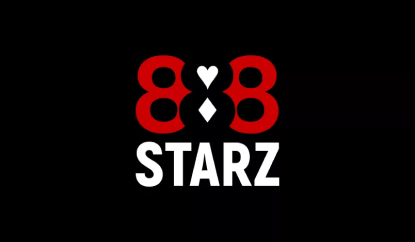In a breathless Nairobi weekend, Kenya Police FC in CAF Champions League became a story of nerve, noise, and the thinnest of margins. The debutants staggered, then stood tall just long enough to scrape through a precarious preliminary tie against Mogadishu City at Nyayo National Stadium. By nightfall, the aggregate read 3-3 and the away goals rule kept the Kenyan champions on the continental path they have dreamed about for years.
Both legs unfolded in Nairobi, a rare quirk that underlined the tie’s unique context with Mogadishu City lacking an approved home venue. The first meeting, designated as the Somalis’ home game, ended 3-1 to Police, a two-goal cushion that felt sturdy at the time. Seven days later, it almost was not enough as Mogadishu won the return 2-0 and came within one strike of a famous upset.
How the tie swung at Nyayo
Police announced themselves in the first leg with early incision and a steady hand under pressure. Erick Zakayo struck in the 15th minute, Mogadishu levelled early after the break, and Police replied with authority through Edward Omondi, before David Simiyu added a third. It was a performance that suggested control, even if the visitors had flashes that warned of their punch on transition.
| CASINO | BONUS | INFO | RATING | |
|---|---|---|---|---|
|
bonus
Deposit KES 147 for up to KES 14,745 bonus + spins!
See 10 Bonuses
|
info
BK 0000683 Industry-leading software providers, over 30 casino games, BCLB license |
|||
|
bonus
Register for up to 31,400 KSH bonus on deposits!
See 12 Bonuses
|
info
No. ALSI-112310012-F15 Unique selection of slots & games |
|||
|
bonus
New players get 50 free spins and a Ksh 2500 freebet!
See 7 Bonuses
|
info
BK 0000665 PG 0000405 Good combination of online casino and betting platform |
The second leg flipped the script, and the temperature of the tie rose with every Mogadishu pass. Issa Yusuf finished smartly in the 34th minute to tilt momentum, then after the interval Joash Onyango tripped Abdikadir Enow in the area and Ibrahim Bungura sent Khadime Ndiaye the wrong way from the spot. With the score at 2-0 on the day, Mogadishu were one clean finish from the next round as Nyayo held its breath.
Police head coach Etienne Ndayiragije went to his bench at halftime for answers. He introduced Edward Omondi, David Okoth, and Eusters Chasara for Zakayo, Alvin Mang’eni, and Simiyu, then later added Moise Mbombo for Albert Otieno as he searched for thrust. The chances arrived in spurts but composure did not, and Mogadishu’s compact shape choked the final ball that had come so naturally a week earlier.
“We had a very big problem with our final pass. We progressed well in the build-up, but our passes went astray in their danger zone,” Ndayiragije said, pointing to transitions that broke Police rhythm and invited trouble.
Even then, the Law Enforcers found a stubbornness that champions often lean on. They defended the box through the final minutes, watched a golden Mogadishu chance sail wide in stoppage time, and clung to the buffer they had earned in the first leg. It was not pretty, and it did not need to be, because the away goals rule carried them into the second preliminary round.
What Mogadishu got right
Mogadishu’s response in the second leg was a study in clarity. Their coach, Abdirahman Ali, explained that high pressing was central to their plan in Nairobi. Police like the ball and control possession, and Mogadishu chose to squeeze those patterns until the Kenyan champions were hurried and inaccurate.
“Police possess the ball but they are slow and lethargic. Today, we wanted to press them high knowing they would make mistakes, and we capitalised on them,” Ali said, adding that a slow start in the first leg cost them the tie.
There was a deeper story around that tactical edge too. Ali, a Kenyan, spoke of how Kenyan coaches and players are shaping the Somali game with new ideas and higher standards. That influence showed across two legs, and even in defeat, Mogadishu’s second-leg win was a marker of genuine progress, hunger, and the value of cross-border knowledge.
Coach perspective and key lessons
Ndayiragije chose gratitude over gloom in the aftermath, a nod to the simple truth that knockout football often demands survival. He highlighted the phases where Police moved the ball with purpose, then circled their undoing, the last pass. He also acknowledged the careless turnovers that handed Mogadishu a runway to counter, a detail that will sit at the top of the training ground agenda.
Preparation has not been straightforward either, with international duty stretching Police resources. Several players, including Abud Omar, Daniel Sakari, Edward Omondi, Marvine Nabwire, and Brian Musa, were away with Harambee Stars during preseason. Ndayiragije admitted that continuity and rhythm were hard to build, and that the national team calls will again tug at the squad during the October window.
“It was difficult to have every player available over preseason. Most of them were with the national team, and they are set to leave again. It is a big challenge, but we must find a way,” the coach noted.
The wider picture around Nyayo
The drama in the stands framed the football in unusual ways. The first leg drew over 10,000 supporters and generated close to Ksh3 million for Mogadishu, with their community in Nairobi turning out in large numbers. The second leg had a starkly different feel, with a poorly attended fixture that muted the matchday income for Police.
The emptier stands were the fallout from a disturbing moment when a section of Mogadishu fans disrespected the Kenyan flag during the first leg. That act drew condemnation from both governments, and arrests followed after an outcry from Kenyans. The flag controversy overshadowed a spirited contest and, by the return leg, Mogadishu supporters largely stayed away, a decision that hit the hosts in the pocket.
Security was visible throughout the second meeting, and the contest passed without incident. Inside the lines, the football remained tight, edgy, and defined by the margins that make continental football so compelling. Once the whistle blew, relief poured out of the Police ranks, a collective exhale that told its own story about pressure and expectation.
Money matters and a timely boost
Off the pitch, Police received the sort of lift that can change a season’s trajectory. The Co-operative Bank of Kenya unveiled a Kshs 25 million sponsorship, a package club patron Dr. Raymond Omollo quickly hailed as timely support for a team flying the national flag on continental duty. For a squad chasing depth, travel, and high-performance demands, that injection is priceless.
The arrival of Co-op Bank adds to a growing portfolio of partners that, together, broaden the base under Police’s ambitions. It dovetails with a busy transfer window too, where the champions brought in 14 players, nine from abroad, to harden their competitive edge. Among them are Tobias Otieno, Mohammed Sarwari, and experienced defender Joash Onyango on loan, plus forwards Moise Mbombo, Exauce Musuri, and Gedeon Muyadi.
Ndayiragije has already leaned on the new faces, with eight debuting in the first leg. He spoke about rhythm and cohesion, insisting the pieces will fit better as competitive minutes accumulate. For the champions, the domestic calendar will help, with an immediate pivot to league fixtures against Ulinzi Stars, then APS Bomet, an internal derby that brings its own subplots.
What comes next
The next continental step is taller, and the prize is clearer than ever. Police are set to face Al Hilal Omdurman in the second preliminary round, with the first leg slated for the weekend of October 18 or 19 in Nairobi, and the return to be played the following week in Zanzibar. Two games stand between them and the group stage, a barrier no Kenyan club has conquered in the modern era.
That is the lure glittering in front of a young Champions League debutant. Get the details right, protect the box when it matters, and sharpen the edge in front of goal, and history becomes possible. Fail those tests, and a seasoned continental opponent will show no mercy.
Keys to beat Al Hilal
- sharpen the final pass and finishing,
- manage transitions after turnovers,
- integrate returning internationals to rebuild rhythm.
Police have been warned by the quarter-hour of chaos they survived against Mogadishu. Their press can be broken if the distances are wrong, and their structure can wobble if the first touch in attack is loose. Correct those imbalances and their blend of technique and physicality can carry them far.
Within the dressing room, leadership matters, and it already shows. Captain David Ochieng, Cheche to most, set the tone between legs by asking Kenyans to rally behind the team at Nyayo. The second leg crowd never built to a fervent roar, but the sentiment sticks, continental nights are richer when the stadium feels like home, and the players feel the pulse at their back.
There are regional storylines unfolding in parallel, Tanzanian giants Simba SC also navigated a tricky assignment, drawing 1-1 with Gaborone United to advance 2-1 on aggregate. These are the margins and moods that define the early continental weeks, a blend of grit, game management, and the odd slice of fortune that keeps dreams burning.
For Police, the takeaway is simple and sobering. Their ceiling is high enough to chase a first for Kenya, yet their floor is low enough to invite peril if they drift from the basics. As Ndayiragije put it, they will pick the positives and fix the rest, a measured approach that matches the stakes ahead.
Champion teams grow in the gaps between games, and the next few weeks are exactly that, a race to refine, recover, and reset before Hilal land in Nairobi. The small things, the ones that decide big nights, will be drilled into habit, the timing of a run, the weight of a pass, the calmness to clear danger when the stadium gasps. This is where a campaign is made, or unmade, one repetition at a time.
By surviving a storm of their own making, Police have earned the right to dream a little louder. The path is narrower now, the opponents tougher, and the scrutiny sharper. But the reward is brighter too, group-stage lights, a platform that could redefine how Kenyan football looks at itself, and a chance to write the chapter many have waited decades to read.
The story of this tie will not be told only in scorelines, but in lessons that travel. Mogadishu showed how far smart coaching and belief can carry a club, and Police learned what it takes to hold a lead when everything is fraying. Somewhere between those truths is the essence of continental football, a game of edges, heart, and the relentless pursuit of better.









